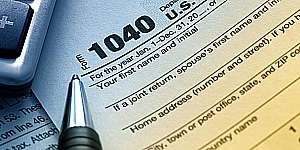Tips on How to Avoid Tax Trouble
Since no one wants the hassle of a tax audit, learning how to avoid one is essential. Of course, if you follow the rules for submitting your taxes properly, you shouldn’t have anything to worry about. However, it is easy to misunderstand some guideline or other and get yourself into trouble without meaning to do so.
Avoiding Tax Audits
Perhaps the best strategy to use when attempting to avoid trouble with the IRS is to maintain accurate records. Keep a list of any of your business-related expenses throughout the year rather than waiting until tax time to compile the list. Keep receipts and all other documentation regarding business expenses. Also keep documentation of any expenses that may be tax deductible.
In addition to keeping good and accurate records, it is important to file your tax documents on time and in full. Complete filings are far less likely to draw attention than tax submissions that are missing one or more pieces of pertinent information.
Triggers for Tax Audits
In fact, certain types of claims are considered red flags for the IRS and might trigger a tax audit. Any of the following circumstances can lead to a red flag situation and the potential for a tax audit.
- Claiming overly large deductions for entertainment or travel expenses related to business but not commensurate with the income level.
- Claiming an overly large percentage of your total income in itemized deductions. Any percentage over 35% would be suspicious.
- Claiming non-typical individuals for deductions. This would include anyone other than a parent, grandparent, or child.
- Failing to include the correct social security number for someone who has been claimed as a dependent.
- Claiming excessively high interest deductions without the evidence to back it up.
- Claiming excessive bad debts without notarized evidence to back it up.
- Claiming home office deductions without any income from a home business.
- Evidence that you are underreporting your income. For example, claiming almost no income or low income especially compared to claims made in previous years.
- Failure to claim tip income while employed in a job that typically receives tips.
- Claiming large charitable donations without the evidence to back these claims.
- Claiming business-related expenses that are not typical of the type of employment.
Undergoing a Tax Audit
If you are scheduled to undergo a tax audit, follow the instructions that you receive completely. Have your records accessible. As long as you have honestly and accurately reported all income and expenses, you should have nothing to worry about.
Download and Share
We Can Help





